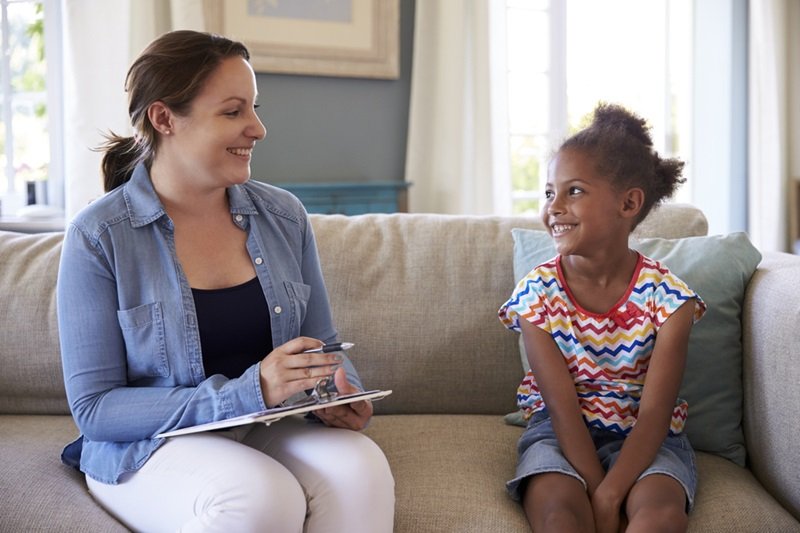As a parent, nothing is as important as the mental well-being of your child. When your child is facing emotional or behavioural issues, it can be concerning to navigate the range of kids therapy options available. Understanding what’s out there and how different therapies can help is a vital step in empowering your decision as a parent. So, let’s delve into this collaborative journey of exploring childhood therapies.
Have you ever wondered what kids therapy entails? Are you confused by the different types of therapy available? How sure are you that a particular therapy will best suit your child’s needs? These are common questions, and the answers are what we seek to provide in this in-depth exploration.
In essence, therapy for children comes in various forms, and each type is designed to address different aspects of psychological and developmental health. Here we offer an overview, detailing the types of therapy, when they are used, and their benefits.
Understanding Kids therapy and Its Importance
Child therapy, also known as child counselling or child psychology, refers to the series of techniques employed by therapists to assist children and adolescents in coping with mental health issues, trauma, or developmental difficulties.
Kids therapy is an essential tool because children, like adults, can experience emotional ups and downs. However, they might not possess the emotional vocabulary or understanding to express their feelings. Therapists are highly trained professionals that can help your child identify and articulate their emotions in a healthy way.
Lastly, early intervention is key. If your child is experiencing distress, therapy could make a significant change in their life, preventing issues from escalating and improving their overall well-being.
Different Types of Kids therapy
When it comes to child therapy, one size doesn’t fit all. The type of therapy best suited for your child would depend on their age, issues and personality.
Cognitive Behavioural Therapy (CBT) is one of the most common forms of therapy. It aims to identify negative thoughts and behaviours and change them into more positive ones. Play therapy is also widely used for younger children, using play as an avenue for them to express themselves.
Family therapy involves the entire family in the therapeutic process, creating an environment where every member can express themselves and improve communication. Other types include art therapy, drama therapy, and more, each offering unique routes to healing and growth.
Decoding the Benefits of Kids therapy
Each therapy practiced has its set of benefits, but a few common advantages could be seen across, including better communication skills, improved self-esteem, and effective handling of stress and anxiety.
Therapy also allows children to understand and handle their feelings better. It helps them in their growth trajectory by tackling behavioural issues, improving their mental health, and understanding the world around them better.
Therapy can also benefit parents. It can provide you with insights into your child’s world, offer guidance and strategies on handling issues your child may be facing, and strengthen your bond with your child.
Navigating the Challenges
While selecting kids therapy for your child may seem challenging, understanding the potential hurdles can make the path smoother.
Deciding on the right therapy for your child is often the most significant challenge parents face. Expert advice would help here, as well as understanding your child’s needs and study up on the various therapies available.
Cost can be another issue. However, many charities, non-profit organizations, and health insurance policies can help cover the costs. The most crucial part is the child’s willingness and comfort in therapy. It could be a process, so patience is essential.
Is it Time for Therapy?
This can be the most nerve-wracking question for any parent. If your child is displaying signs of distress consistently, if their behaviour is impacting their daily life negatively, or if they experienced a traumatic event – it may be time to consider therapy.
Always remember, there’s no harm in seeking help. Sometimes, just a few sessions are all that’s needed to provide your child with coping strategies for whatever they’re facing.
Conclusion:
In a nutshell, kids therapy provides a safe, supportive environment for children to express themselves, learn to cope with life’s challenges, manage mental health conditions, and ultimately, thrive. Each form of therapy caters to different needs and developmental stages, making it versatile and inclusive.
Remember, no question is too insignificant when it comes to your child’s well-being. You are in control, and understanding the way these therapies work will empower your decisions, leading to the best outcome for your child. Keep asking, continue exploring, and don’t hesitate to seek the guidance of professionals in the field. After all, every child deserves the chance to grow into an emotionally healthy, happy individual.


